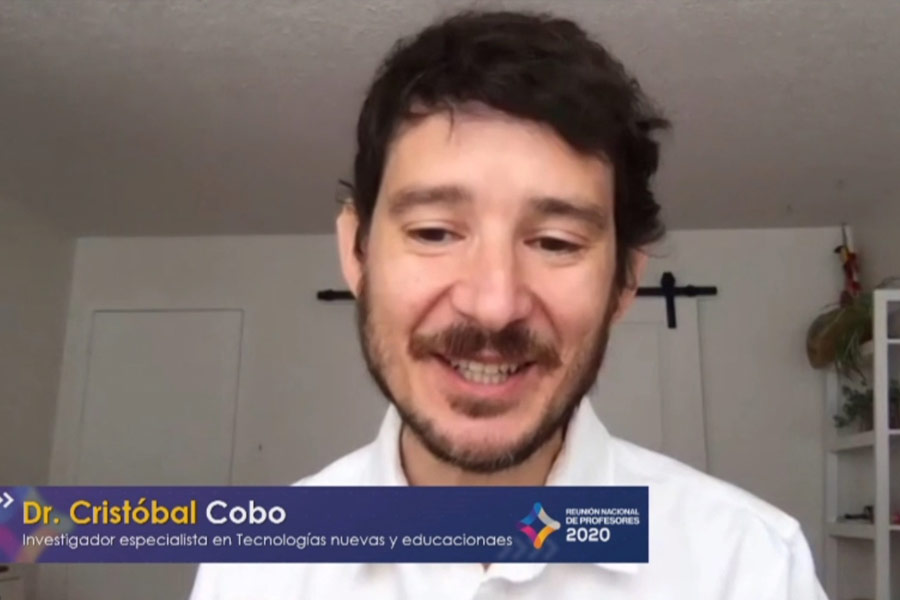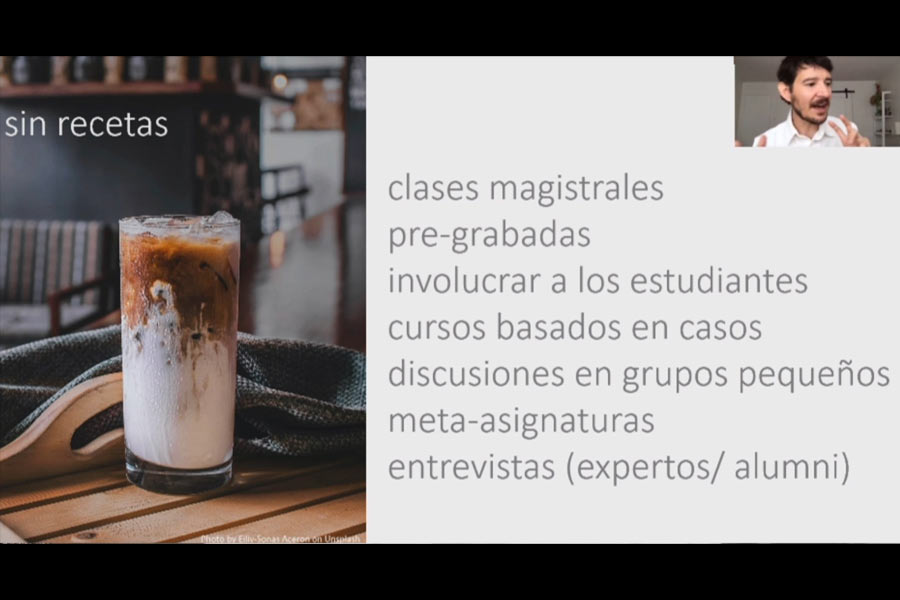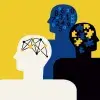The advice given to Tec faculty by Cristóbal Cobo included supporting students in the development of metacognitive skills, reducing the number of synchronous classes and thinking about other technologies.
This researcher, specializing in technology and education, gave a virtual talk at the 2020 National Teachers’ Conference, in which he stated that emergency remote teaching due to COVID-19 has created new challenges for education.
“Today, the temptation is to try to put everything we do into a digital format. I think we can go a little further: we can re-think university,” he said.

Cobo said that although the use of digital technology is efficient for the transmission of information and data, knowledge development implies the use of different techniques.
“(It requires) the ability to construct meaning and connect knowledge from different disciplines and different contexts. That requires more time, perhaps much more than the time necessary to work through a large amount of data,” he added.
“Today, the temptation is to try to put everything into a digital format. I think we can go a little further: we can re-think university.”
10 SUGGESTIONS TO RE-THINK TEACHING
Cobo, who recently released the book ‘Expanding the university beyond emergency remote teaching’ with Hugo Pardo, spoke of the need for universities to manage, design, and explore new ways of constructing learning experiences.
Although he pointed out that there was no ‘magic bullet’ that applies to all higher education institutions, he shared 10 specialized suggestions with faculty which will help them re-think teaching:
1. Construct the idea of an ‘expanded university’.
The researcher shared the idea of becoming an ‘expanded university’, one that not only cares about transmitting knowledge, but also supports students in every way.
“It will probably require a transition from a full program to a ‘lighter’ program, from a predefined rhythm to a much more self-directed one, from an emphasis on the cognitive development to one that combines access to information and both cognitive and socio-emotional development.
“It is an concept where it is not only memorization that is valued, but also the construction of experiences: learning to learn; it is through this that we can complement the lack of physical contact with other ways of generating a human connection,” he explained.
2. Develop students’ metacognitive skills.
Cobo emphasized that one of the greatest challenges for teachers is to support their students by developing their metacognitive capacity, teaching them to learn by themselves, regardless of the technology used.
“The pandemic has shown us that a huge difference exists not only between students who can access content and those who cannot, but also in those who have developed metacognitive skills, the ability to translate knowledge from one context to another, and this is very important in an environment filled with information,” he said.
3. Don’t hold too many synchronous classes.
“We have seen that there is a lot of emphasis on synchronous classes in many countries: hour after hour of Zoom, and the truth is that it is not necessarily the best way to learn. Sometimes it is good to generate a digital pause: there should be a break after the live class,” he commented.
Cobo recommended not holding too many synchronous classes since, “our attention is one of the most valuable resources we have and therefore we have to think about using it in a strategic way (...) if there is something we definitely know, it is that long periods of remote learning translates into short attention spans.”

4. Think about expanding upon the technology used.
Cobo emphasized that the internet is not the only technological tool that teachers can use for the teaching and learning process.
He invited teachers to explore more pedagogical tools that combine different types of technology.
“In different countries, we are seeing multi-channel strategies, where we continue with the learning experience beyond the internet, such as delivery of materials, the use of analog technologies which, combined with the use of the cellphone, can be efficient,” he explained.
5. Complement the lack of face-to-face experiences with other ways of generating a human connection.
The researcher suggested having a good combination between live lectures, recorded classes, teamwork, and small groups discussing and working on projects or perhaps thinking about meta-topics.
“As teachers, you must be an experience designer, thinking about how to go beyond the limitations; for example, what about visits to companies? We can bring participants, guests, to our class: scientists, experts, entrepreneurs, influencers or alumni,” he suggested.
6. Put physical and mental support systems in place.
“We are deeply emotional beings and isolation generates feelings of anxiety, anguish, and concern (...) so it is essential that we think of physical and mental support systems in these difficult times,” said Cobo.
He recommended developing “Happy Hours” within teaching and learning spaces, referring to spaces that can be used to talk about other topics, leaving cognitive development to one side and complementing it with the socio-emotional thereby generating new opportunities for bonding.
7. Evaluate, analyze and re-frame programs.
“Formative evaluation allows us to hear what is and what is not working; it allows us to accompany, correct, and at times give special support to those students who may be falling behind,” he advised.
He said that feedback was not a one-dimensional concept, but one that is affected by when and how we give feedback: if it is personal or collective, if it is only provided by the teacher, or by other people as well.
8. Consider the current context and adjust expectations as necessary.
The research specialist in educational technology asked teachers to be aware of the unusual context caused by the pandemic, in order to better adapt.
“You have to know how to generate realistic expectations in this context (...) it is evident that face-to-face learning does not easily translate to remote learning: conditions change, contexts change, time and attention levels change,” he stated.
“We must understand that technology is not neutral, it is not necessarily disruptive, and that relates to how we incorporate it and how we adapt it. Bringing parents into the discussion and talking about expectations is also essential”.
9. See opportunities to innovate and improve teaching.
For Cobo, this time should be used to rethink how we educate. “Convert (this moment) into an opportunity to systematically review what is working and what is not,” he stressed.
The researcher believes that at this time it is essential for faculty to open dialog with the student community, with parents, and with the institution where they are working.
“(These dialogues) will help us build a learning laboratory where we can create a much richer portfolio of ideas, and hope that this will provide an opportunity for re-thinking university upon emerging from the pandemic,” he said.
10. Implement extra support strategies.
Cobo stressed the importance of following up with all students and, if needed, offering them different ways to develop their learning and skills.
“From the very beginning, you have to implement strategies for extra support, and understand that not all students learn in the same way, at the same speed, or through the same channels,” he said.
2020 NATIONAL TEACHERS CONFERENCE
This year, the activities at the Tec de Monterrey National Teachers’ Conference are taking place virtually from July 6 - 10, respecting the public health measures recommended by the authorities as a result of the COVID-19 pandemic.
During the virtual sessions, faculty will participate in activities to ensure academic continuity and discussions about progression in formative programs. Collaborative Academic Community meetings will also be held.
The National Award for Most Inspiring Teacher, recognizing excellent teaching during 2019, will also be presented during the conference.
YOU’LL ALSO WANT TO READ:





